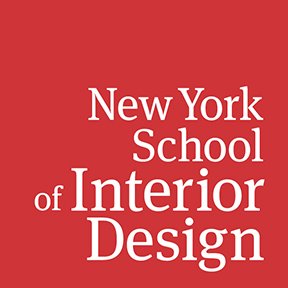David Sprouls and David Kleinberg on Why Interior Design Will Matter During and After the COVID-19 Pandemic
NYSID’s President, David Sprouls, and board member, David Kleinberg, discuss interior design’s potential to meet the needs of a culture transformed by the COVID-19 pandemic.
“This is a time for ingenuity. Everyone in the industry is going to have to reexamine what they do and how they do it, and that can be a good thing.” — David Sprouls, President, NYSID
In a matter of weeks, COVID-19 has dramatically altered our lives, especially the way we work. No one can know which changes will become the new normal. We sat down virtually with two of NYSID’s leaders to hear their thoughts on how COVID-19 might change the way we live for good, and why that’s not necessarily a bad thing for the interior design profession. Says David Sprouls, “We could look at this in a pessimistic way for the industry, or we could focus on the opportunity: This crisis is forcing us to rethink spaces, whether they are domestic or public.”
Interior Designers Have Always Been Adaptive
President Sprouls points out that interior designers have always been responsive to changes in the culture, and those who adapted, survived, and brought the industry along with them. “Interior design as we recognize it today is a product of the Industrial Revolution, the rising middle class, and access to mass-produced goods. In reaction, tastemakers like Candace Wheeler and Edith Wharton sought to elevate design and educate the public,” he says. “Between World Wars I and II, the profession embraced efficiency and the mechanization of the home after the horrors of war. Educational institutions, first the Bauhaus and later Cranbrook, projected faith in the transformative power of design. Post-war homemakers and corporate “Mad Men” alike carried forward this confidence in new materials and methods of production. As more and more women went to work in the 60s and 70s, lines began to blur between male and female spheres. Other ‘old-fashioned’ formalities also fell by the wayside. Walls literally began to come down in open plan offices and homes. Right now, we are in a pivotal historical moment: The COVID-19 pandemic is speeding technology’s transformation of society. People are realizing they can work productively from a niche in their home. Now interior designers will rise to the challenge of rethinking the walls. The very definition of space is changing.”
Reasserting the Importance of Home
Trustee David Kleinberg, founder and president of David Kleinberg Design Associates, believes that social isolation is causing people to think deeply about the functionality and importance of their domestic spaces. “When you’re stuck at home socially isolating, it becomes apparent why interior design is so important,” he says. “In other crises, we gathered together publicly. In this instance, we have to isolate to withstand this, so it is probably more important than ever to find comfort in the environment in which you isolate. Your home environment needs to help you work and relax. Now and in the future, the design of the home must support and calm us.”
Reevaluating Our Public Spaces
“There’s no more important work than what’s being done by nurses, doctors, and other frontline responders right now,” says David Sprouls. “But are the spaces our healthcare providers are working in working for them? Hospital spaces have been forced past their limits. Interior Design will have a role to play in the way hospitals are transformed to anticipate the possibility of future pandemics.”
Sprouls also hopes there will be a flowering of public life after the lockdown and crisis, and that a burst of sociability, the desire to be out, will be a boon for the hospitality sector of the industry.
He reflects, “We are at an inflection point as a culture. We are going to reimagine the way we look at interior spaces as a result of what we have been through. As interior design educators, it’s our responsibility to lead that charge. NYSID’s curriculum will challenge students to envision how people can live better and more safely after this crisis.”


